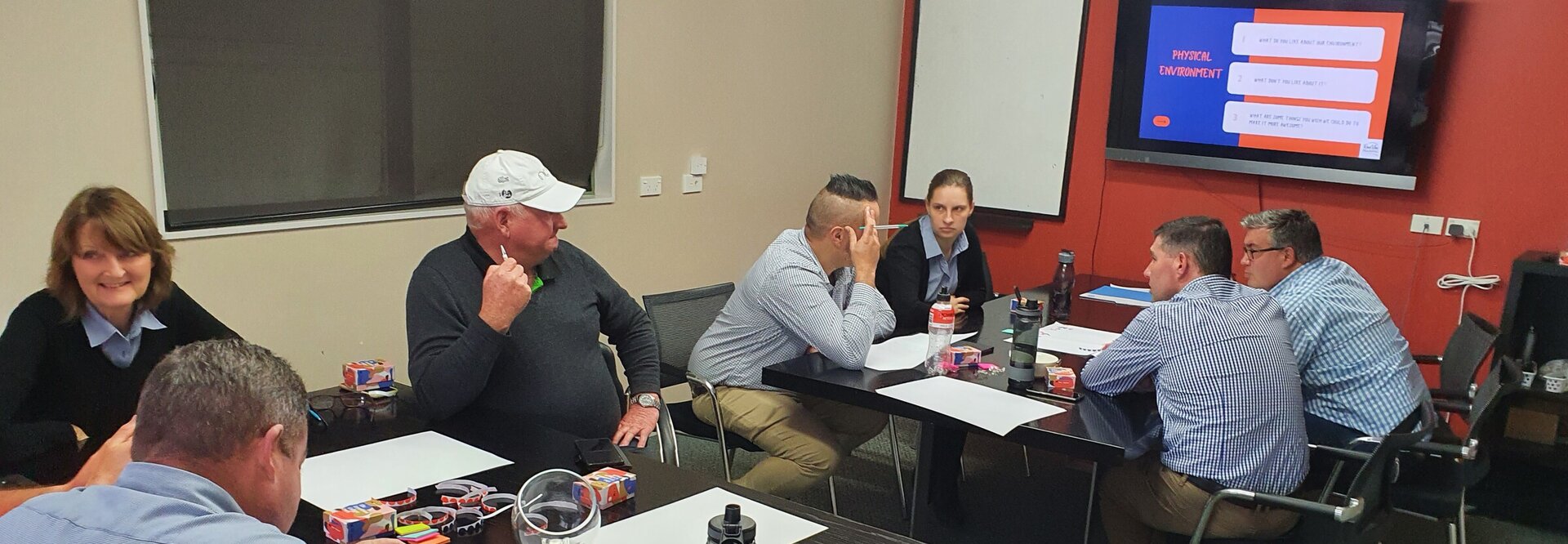Talk to a ton of people and you will get mixed responses; everything from “It’s utter B.S,” to “It’s critical.”
I’ve been a workplace trainer for nearly a decade. I have helped a ton of teams get better at being better. But, when I re-visit these teams, there are sometimes wounds that I had managed to put band-aids on, surfacing again.
Part of the issue may be an environment whereby people are unable to have “safe conflict” conversations. This means, they don’t speak up when they want to. They may be scared they will get ridiculed or told off, they may not want to offend, or they don’t feel their opinion / ideas matter.
What ever the reason, there are often unpleasant emotions that get buried in the person that does not speak up and frustration, relief, disappointment (or some other emotion), in the person that they were going to speak to.
So, why does it happen?
Here are a few reasons:
Expressing emotions maybe considered a sign of weakness, therefore you may lose mana
Showing emotions get swept under the mat “Oh it’s just hormones.” “They’re just being sensitive.”
There may be a background of denying emotions “Don’t whinge or I’ll give you something to whinge about!”
Acknowledging that you may have made someone feel bad can be too confronting
Coming from an environment with little or no emotional literacy means naming an emotion can be difficult
What does it mean?
Usually, these emotions go away reasonably easily and everything returns to as it was before. But, over time, left unchecked, the unpleasant emotions simmer deep inside us, much like a pot on the stove, and eventually, it will boil dry; otherwise known as burn out. Or, conversely, they boil over into a much bigger issue.
Either way, the harmony & mental health of the team is compromised. Guess what – that means the effectiveness of your team / staff is compromised.
In summary:
Emotions drive our behaviour
Behaviour drives our effectiveness (productivity or service).
How do you get around this?
Get your team naming & owning their emotions, building trust and understanding each other. With this foundation, safe & healthy conflict can occur which, of course leads to commitment, accountability and ultimately, results. ( Refer Five Dysfunctions of a Team by Patrick Lencioni https://www.youtube.com/watch?v=GCxct4CR-To ).
Just sit with that for a moment.
Imagine your team member owning their frustration and letting it pass because they realise that their colleague wasn’t being complacent just to “piss them off,” they understand that what is important to them, just isn’t a priority to the other party. So, they communicate the importance of a task, in a way that the other person understands.
Consider what it is like to give an instruction to a team member that is going to put them under considerable strain and compromise the quality of either the task you have just given them or the work they are currently doing. What would it be like if they had the confidence to speak up and let you know, honestly and respectfully, that you are overwhelming them and perhaps offer an alternative?
I HELP PEOPLE, UNDERSTAND PEOPLE. I get teams talking. One of the tools I use is called "The Emotional Culture Deck." This helps to open the lines of communication, break down some of the barriers, reduce attendance & turnover issues, whilst building the confidence, mental well-being and productivity of your team.
You can download a pdf version today (click here), and start having conversations that change your culture.

